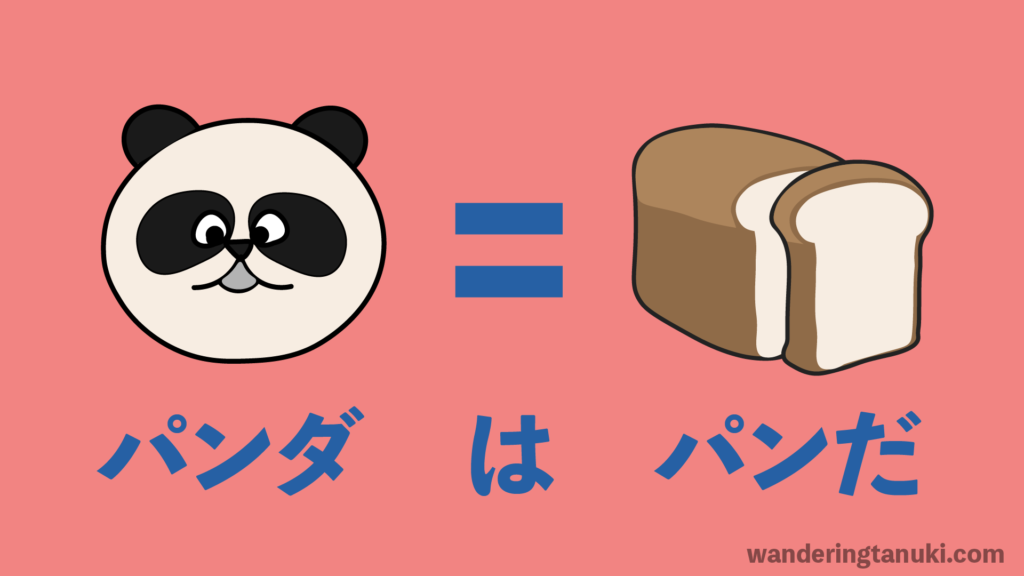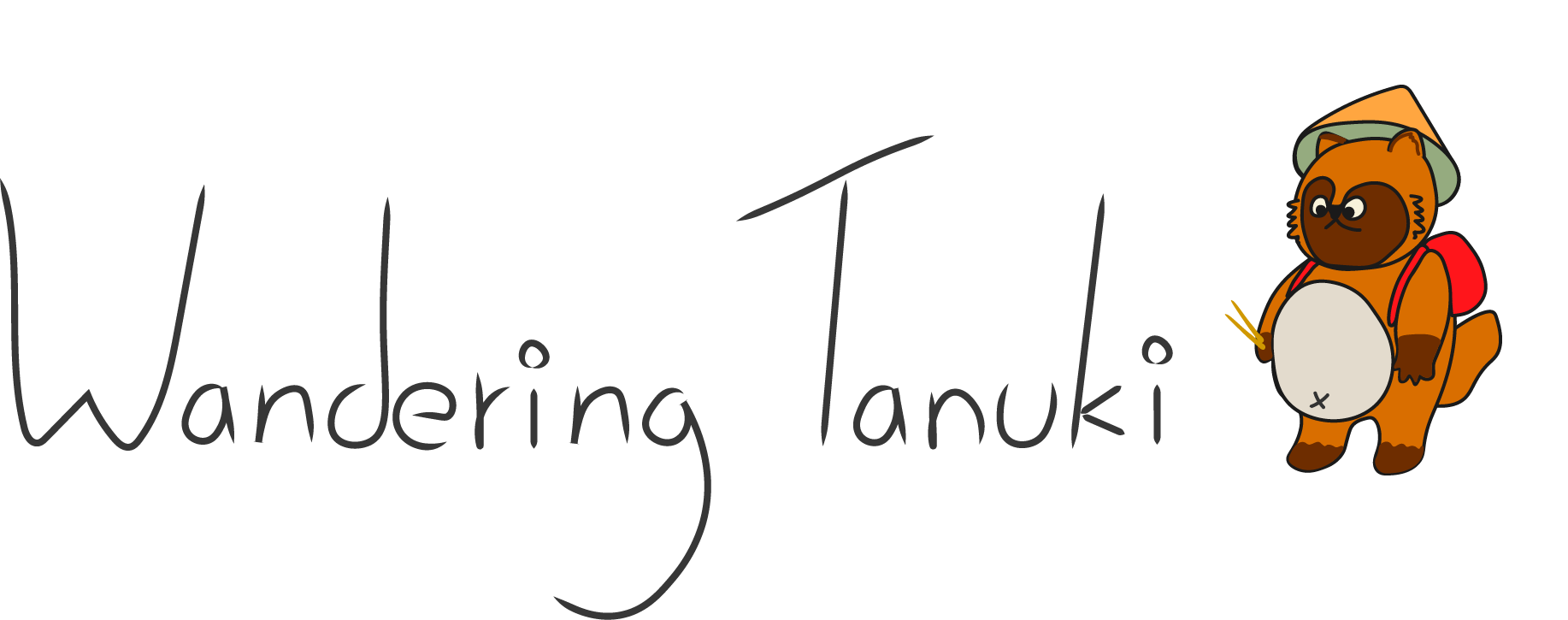20 Funny Dajare or Japanese Puns!
Did you know that there are Japanese puns, called dajare? Here’s a way to lighten your mood, while also learning Japanese!

What’s a pun?
Before we talk about Japanese puns or dajare, let’s go over what a pun is. Puns are jokes that use the same sounding words that mean different things. It focuses on wordplay! For example, “Bears go barefoot” is a pun because “bare” sounds like “bear”!
How do puns work in Japanese?
In Japanese, puns are called ダジャレ (dajare) which means wordplay. Dajare works the same way as an English pun. It can actually be somewhat easier to make puns in Japanese because there are so many words that sound the same. For example, パンダはパンだ ( panda wa pan da) means “Panda’s are bread.” The word for panda (パンダ) and bread (パン) sounds the same!
Who uses these puns?
Everyone can use dajare or Japanese puns, but it’s usually associated with オヤジギャグ (oyaji gyagu) or Japanese dad Joke. Dajare can be so bad that it’s funny. It can bring a cheerful mood if you say it at the right time! Some people in Japan love dajare so much that there is even a national organization dedicated to these puns with fun events!
Now let’s move on to a list of 20 Dajare or Japanese puns!
1. 布団が吹っ飛んだ – Futon ga futton da – The futon blew up
This is a dajare on the word futon! Notice how 吹っ飛んだ (futtonda) or “blew up” also sounds like futon.
2. アルミ缶の上にあるミカン – Arumikan no ue ni aru mikan – The orange on top of the aluminum can
If you’re drinking a soft drink while eating an orange, try out this Japanese pun. The word for aluminum can アルミ缶 (arumikan) sounds a lot like みかん (mikan) or orange.
3. ラクダは楽だ – Rakuda wa raku da – Camels take it easy
Camels seem to take it easy in the desert. This is the perfect dajare to describe these animals. ラクダ (rakuda) the word for camel sounds exactly like “to be easy” or 楽だ (rakuda).
4. 内臓がないぞう! – Naizou ga nai zou! – There’s no organs!
This is the kind of Japanese pun that’s so bad that it could be funny. 内臓 (naizou), the word for organs or intestines, sounds like a word that means “it’s not there!” or ないぞう!(naizou!).
5. ハエは速えー – Hae wa haee – Flies are fast
Next time you can’t seem to kill a fly in your house, try saying this phrase! ハエ (hae) the word for fly sounds like the phrase “it’s fast!” or 速えー (haee).
6. このブドウ、一粒どう?- Kono budou hitotsubu dou? – Want a piece of grape?
If you’re out on a picnic, offer your Japanese friend some grapes with this Japanese pun. ぶどう(budou), the word for grape, appears in the question 一粒どう? (hitotsubu dou) which means “want a piece?”.
7. 馬が埋まった – Uma ga umatta – The horse was buried.
埋まる (umaru) means to be buried. This dajare uses this verb and the word for horse which is 馬 (uma).
8. トイレに行っといれ – Toire ni ittoire – Go to the bathroom
If someone gets up to use the bathroom, you can say this pun as a joke! トイレ (toire) the word for bathroom gets cleverly placed at the end of the phrase.
9. コーディネートはこうでねえと! – Koodineeto wa koo de neeto. – Coordinating should be like this!
In Japanese, coordinate can mean to match and style your clothes. This is a funny Japanese pun that you can say when your friend has a great clothing style.
10. アジの味 – Aji no aji – The taste of horse mackerel
アジ (aji), the word for horse mackerel fish, is also the same word for “taste”. Try out this dajare when you’re out at a seafood restaurant.
11. カラシで花を枯らした – Karashi de hana o karashita – I killed my flower with mustard.
I’ve never heard of anyone giving mustard to a flower, but this can be a clever pun! To kill a plant is 枯らす(karasu) and mustard is カラシ (karashi)
12. ギターがうるさすぎたー– gitaa ga urusasugitaa – The guitar was too loud
By adding a line at the end of the phrase, this phrase adds the word guitar twice! It’s a fitting sentence since guitars tend to be loud.
13. シャベルが喋る – Shaberu ga shaberu – The shovel speaks
The word “shovel ” in Japanese is exactly the same as “to speak”! If you’re out gardening this dajare could work great.
14. 小学生は生姜くせえ – Shoougakusei wa shouga kusee – Elementary schoolers smell like ginger.
I can imagine elementary or middle schoolers enjoying this pun. The word for elementary schooler 小学生 (shougakusei) sounds exactly like the phrase “smells like ginger” or 生姜くせえ (shouga kusei).
15. ゾウはこわいぞう – zou wa kowai zou – Elephants are scary
Next time you’re out at the zoo and see an elephant, you could use this dajare. ゾウis the word for elephant and is the same as the phrase ending!
16. チョコをちょこっとくれ – choko o chokotto kure – give me a little chocolate
If you’re eyeing your friend’s chocolate, you could say this phrase! チョコ (choko), the word for chocolate, and ちょこっと(chokotto) or “little bit” sounds similar.
17. 猫が寝込んだ – neko ga nekonda – The cat fell asleep (got sick)
This is a Japanese pun that uses the words for cat 猫 (neko) and 寝込んだ (nekonda) which means fell asleep or got sick.
18. 抹茶にハマっちゃった – Maccha ni hamacchatta – I’m into matcha
ハマっちゃった (hamacchatta) is a casual phrase that means you’re getting into a new hobby or interest. This pun cleverly uses the word maccha, powdered green tea, which sounds similar.
19. サバをさばく – Saba o sabaku – Fileting a Pacific mackerel fish
サバ (saba) is a type of fish that people enjoy in Japan. It sounds a lot like the verb “to filet” or さばく(sabaku).
20. 木が気になる – Ki ga kini naru – I’m concerned about the tree
If you’re out in the forest, you could say this Japanese pun. 木 (ki), meaning tree and 気 (ki), meaning feeling sound the same but mean different things!
I hope this article helped you learn some new dajare or Japanese pun phrases! These can be a great way to practice pronunciation. If you’d like more Japanese language learning blog articles be sure to check out How to Say Yes and No in Japanese or Me, My, and I in Japanese: Let’s talk about yourself!
~ Tanuki





